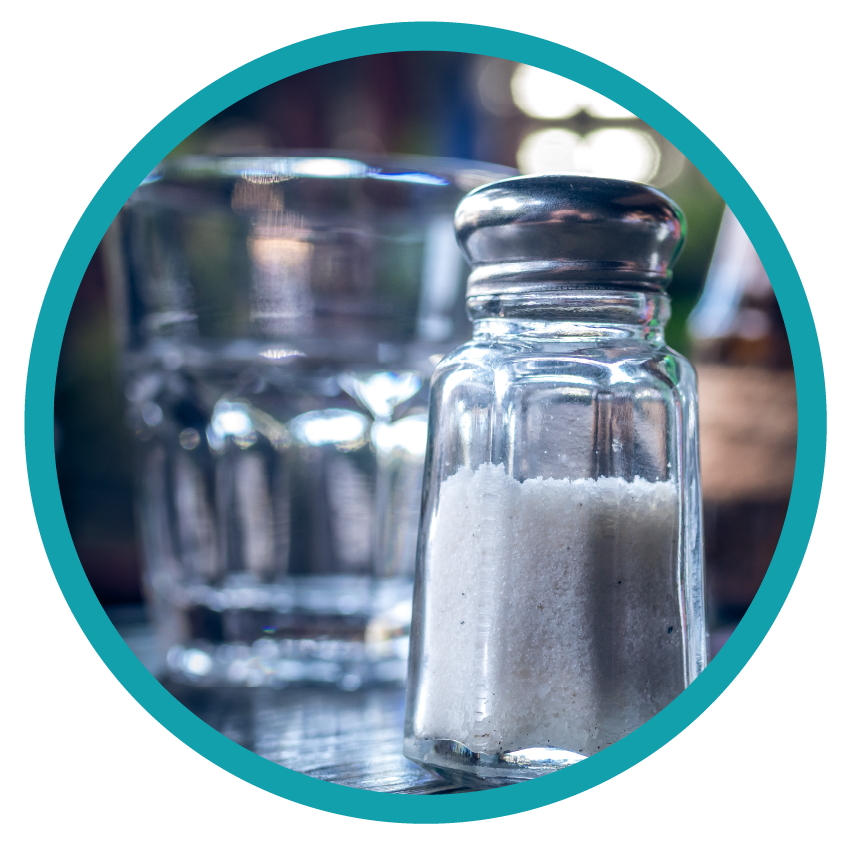
Though many of us would prefer to avoid coughing, this natural reflex actually helps protect our lungs and airways against certain irritants, such as dust, germs, and mucus buildup [1].
Think of the last time you drank a glass of water too fast, and started coughing. Though many of us blame the water for “going down the wrong tube,” what actually happened was the water was likely blocking your windpipe. So, to help prevent you from choking, your body reacted by making you cough the water back up and out.
We should remember that coughing, though sometimes unpleasant, isn’t always a bad thing. However, when a cough becomes persistent, or causes other symptoms to develop like shortness of breath or wheezing, it may be a sign of something that requires medical attention.
It’s important to note that there are different types of coughs (i.e., wet or dry) and some may produce phlegm or make breathing more difficult.
In this article, we’ll break down two types of coughs: productive vs. non-productive coughs. From there, we’ll discuss what each type of cough means and why our bodies trigger this type of response.
Productive Cough vs. Non-Productive Cough
A simple way to remember the difference between the two types of coughs is to think of one as helping you clear mucus from your lungs while the other may be experiencing difficulty, due to other underlying conditions.
- Productive Cough: When you experience a cough that is productive, your airways and lungs are working together to bring up mucus or phlegm and propel it out of your body.
- Non-Productive Cough: With a non-productive cough, your airways and lungs are unable to successfully move mucus or phlegm up and out—often leading to a respiratory infection [2].
Productive Cough Meaning
Another way to think of a productive cough is as a “wet cough.” Though it might sound, or feel, unpleasant, it should come as a relief when you experience it—as it’s telling you that your lungs are trying to expel the foreign contaminants (dust, germs, etc) from your body. A wet cough is a sign that your body is breaking the mucus up, so it’s easier to cough up and out of your lungs.
Why Do We Experience Wet Coughs?
A wet cough may be triggered by a recent respiratory infection from a common cold or flu, congestive heart failure, or a pre-existing chronic lung condition like COPD (chronic obstructive pulmonary disease) or bronchiectasis [4].
Non-Productive Cough Meaning
You’ve probably guessed it already, but a non-productive cough is the opposite of a wet cough. You may have heard it referred to as a “dry cough” [3].
“A dry cough doesn’t produce mucus. Because there isn’t mucus blocking the lungs or airways, nothing comes out when you cough. This lack of mucus (phlegm) makes it an unproductive cough” [5].
Why Do We Experience Dry Coughs?
Certain underlying conditions, such as asthma, can cause a narrowing of the airways, making someone experience dry cough. Post-nasal drip (when mucus from your sinuses drip to the back of your throat, causing irritation) can also contribute to a person’s dry cough symptoms [6].
Coughs, whether wet or dry, can be painful on your chest, back, and the rest of your body. This is why some people may experience fatigue after a coughing spell:
“A person uses many muscles in the chest, back, and abdomen when they cough. An intense cough or many days of coughing can exhaust these muscles, making them feel sore or painful, especially when a person massages the affected area” [7].
It’s recommended that if your cough lasts more than 8 weeks [8], it could be a sign of a serious condition, such as COPD or bronchiectasis.
What To Do In the Event of a Wet Cough
Though a wet cough can feel and sound painful, it’s important to remember that a wet, or productive, cough is doing its job of helping you break up mucus and prevent a buildup of thick, sticky phlegm in the lungs.
However, it’s important to point out that there are treatments available that can help improve the effectiveness of a wet cough, such as airway clearance: “Airway clearance devices…use pressure and vibration to help shift phlegm from the airways during exhalation. This helps improve cough efficiency” [9].
This is often recommended for patients who are experiencing a wet cough, due to an underlying condition that is causing mucus buildup in the lungs. Bronchiectasis, for instance, can repeatedly (and permanently) damage the bronchial tubes that carry air in and out of your lungs. This leads to airways widening, as well as lung inflammation and irritation.
 “[Bronchiectasis] results in excess mucus production, which can trigger a wet cough. Excess mucus production, leading to a buildup within the bronchial tubes, also increases the risk of a lung infection” [10]. Therefore, a treatment like airway clearance works to help bronchiectasis patients manage their chronic cough and inflammation symptoms in order to prevent the onset of infection.
“[Bronchiectasis] results in excess mucus production, which can trigger a wet cough. Excess mucus production, leading to a buildup within the bronchial tubes, also increases the risk of a lung infection” [10]. Therefore, a treatment like airway clearance works to help bronchiectasis patients manage their chronic cough and inflammation symptoms in order to prevent the onset of infection.
Could SmartVest be the right option for you?
Learn more about managing symptoms with airway clearance therapy.
For those who are experiencing a wet cough from a cold or flu, your doctor may recommend one of the following home remedies:
Drink Plenty of Fluids
Keeping your body hydrated is important—whether or not you’re feeling under the weather. But if you are sick and experiencing a wet cough, fluids can help you keep mucus loose and moving, so it doesn’t build up and create a worsening of symptoms.
 It’s also reported that hot beverages, such as herbal teas, clear broths, and even warm water can help alleviate cold or flu symptoms, which may include sore throat or fatigue [11].
It’s also reported that hot beverages, such as herbal teas, clear broths, and even warm water can help alleviate cold or flu symptoms, which may include sore throat or fatigue [11].
Introduce Steam Into Your Sinuses
Whether you decide to take a hot bath, shower, or even create a home-made steam bowl, allowing steam to gently enter into your airways can help you find symptom relief from chest congestion that may be causing your wet cough [12].
 You may also decide to put a humidifier by your bed at night to help create added moisture to prevent irritation in your lungs or airways. This is especially beneficial during the cold, dryer months of the year.
You may also decide to put a humidifier by your bed at night to help create added moisture to prevent irritation in your lungs or airways. This is especially beneficial during the cold, dryer months of the year.
Gargle Salt Water
If your wet cough is accompanied by a sore throat, your clinician may recommend gargling salt water: “salt water reduces phlegm and mucus in the back of the throat which can lessen the need to cough” [13].
 Your doctor may recommend mixing a half a teaspoon of salt into an 8 oz glass of warm water. After the mixture dissolves and cools down, you will take a sip. Without swallowing the substance, you want to allow it to sit at the back of your throat for a minute or two. Next, gargle the water before spitting it back out into the sink. Just remember not to drink any of the salt water.
Your doctor may recommend mixing a half a teaspoon of salt into an 8 oz glass of warm water. After the mixture dissolves and cools down, you will take a sip. Without swallowing the substance, you want to allow it to sit at the back of your throat for a minute or two. Next, gargle the water before spitting it back out into the sink. Just remember not to drink any of the salt water.
When to Contact Your Doctor
If you’re experiencing persistent wet cough that is accompanied by green or yellowish phlegm, mucus that has a distinct odor, or fever, it could be a sign of a more serious condition.
 When in doubt, it’s best to contact your healthcare provider and explain your symptoms, so he or she can prescribe the best treatment plan to help you to help alleviate symptoms and get you back to feeling your best.
When in doubt, it’s best to contact your healthcare provider and explain your symptoms, so he or she can prescribe the best treatment plan to help you to help alleviate symptoms and get you back to feeling your best.
Request a SmartVest Informational Packet to bring to your next appointment.
What To Do In the Event of a Dry Cough
As mentioned earlier, most dry coughs are the result of another underlying condition. Therefore, you’ll want to check with your clinician before trying any over-the-counter (OTC) cough medicines [14].
There are also a few home remedies you may decide to try to help relieve your dry cough. As with a wet cough, staying hydrated and using a humidifier is highly recommended [15].
If you’re an adult, your clinician may recommend you swallow a spoonful of honey, as studies have shown how honey can stop coughs in adults often better than OTC medicines, such as cough drops [16].
 When to Contact Your Doctor
When to Contact Your Doctor
According to experts, if a persistent dry cough is making you experience chest pain, difficulty breathing, fever, chills, or wheezing, it’s best to contact your clinician.
If your cough produces blood, you’ll want to contact your healthcare team immediately to follow their instructions and get the help and support you need!
Get More Healthy Lungs Resources
We encourage you to browse through our extensive library of resources that range from airway clearance, COPD, bronchiectasis, and more!
If you’d like to learn more about the benefits of airway clearance via the SmartVest Airway Clearance System, including relieving mucus buildup and helping you manage your symptoms, request a free informational packet today or contact our Patient Care Advocate team at 1.855.528.5690 to discuss if SmartVest could be an option for you.
Resources:
[1] American Lung Association. “Learn About Cough.” Retrieved from https://www.lung.org/lung-health-diseases/warning-signs-of-lung-disease/cough/learn-about-cough
[2] Medical News Today. “What to Know About a Cough with Mucus.” Retrieved from https://www.medicalnewstoday.com/articles/cough-with-mucus
[3] Medical News Today. “Wet Coughs: What to Know.” Retrieved from https://www.medicalnewstoday.com/articles/327442
[4] Medical News Today. “Wet Coughs: What to Know.” Retrieved from https://www.medicalnewstoday.com/articles/327442
[5] Cleveland Clinic. “Dry Cough and Chest Tightness.” Retrieved from https://my.clevelandclinic.org/health/symptoms/21888-dry-cough-and-chest-tightness
[6] Medical News Today: “What Can Cause Dry Cough.Retrieved from https://www.medicalnewstoday.com/articles/324912
[7] Medical News Today. “Why Does My Chest Hurt When I Cough.” Retrieve from https://www.medicalnewstoday.com/articles/chest-hurts-when-i-cough
[8] Mayo Clinic. “Chronic Cough.” Retrieved from https://www.mayoclinic.org/diseases-conditions/chronic-cough/symptoms-causes/syc-20351575
[9] Medical News Today: “Medical News Today. “Wet Coughs: What to Know.” Retrieved from https://www.medicalnewstoday.com/articles/327442
[10] Medical News Today: “Medical News Today. “Wet Coughs: What to Know.” Retrieved from https://www.medicalnewstoday.com/articles/327442
[11] Medical News Today. “What Can I Do To Make My Cough Go Away? Retrieved from https://www.medicalnewstoday.com/articles/322394#twelve-natural-cough-remedies
[12] Medical News Today. “What Can I Do To Make My Cough Go Away? Retrieved from https://www.medicalnewstoday.com/articles/322394#twelve-natural-cough-remedies
[13] Medical News Today. “What Can I Do To Make My Cough Go Away? Retrieved from https://www.medicalnewstoday.com/articles/322394#twelve-natural-cough-remedies
[14] Cleveland Clinic. “Dry Cough and Chest Tightness.” Retrieved from https://my.clevelandclinic.org/health/symptoms/21888-dry-cough-and-chest-tightness
[15] Cleveland Clinic. “Dry Cough and Chest Tightness.” Retrieved from https://my.clevelandclinic.org/health/symptoms/21888-dry-cough-and-chest-tightness
[16] Cleveland Clinic. “Dry Cough and Chest Tightness.” Retrieved from https://my.clevelandclinic.org/health/symptoms/21888-dry-cough-and-chest-tightness

